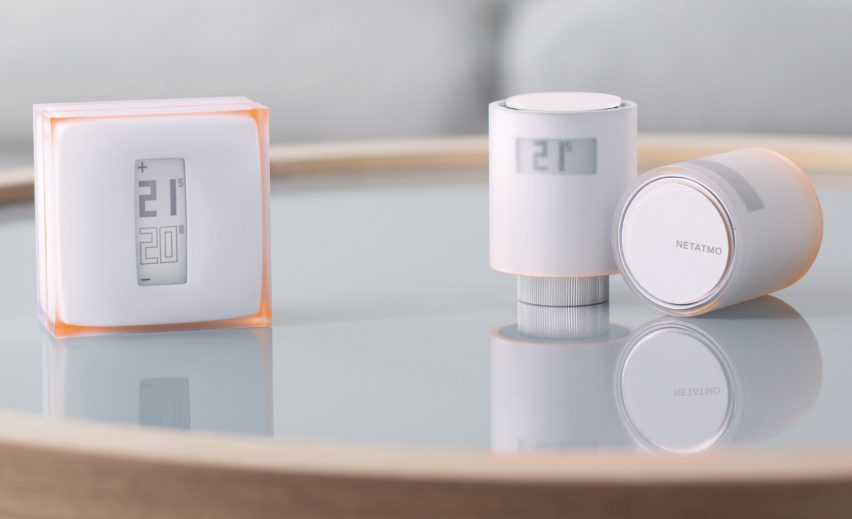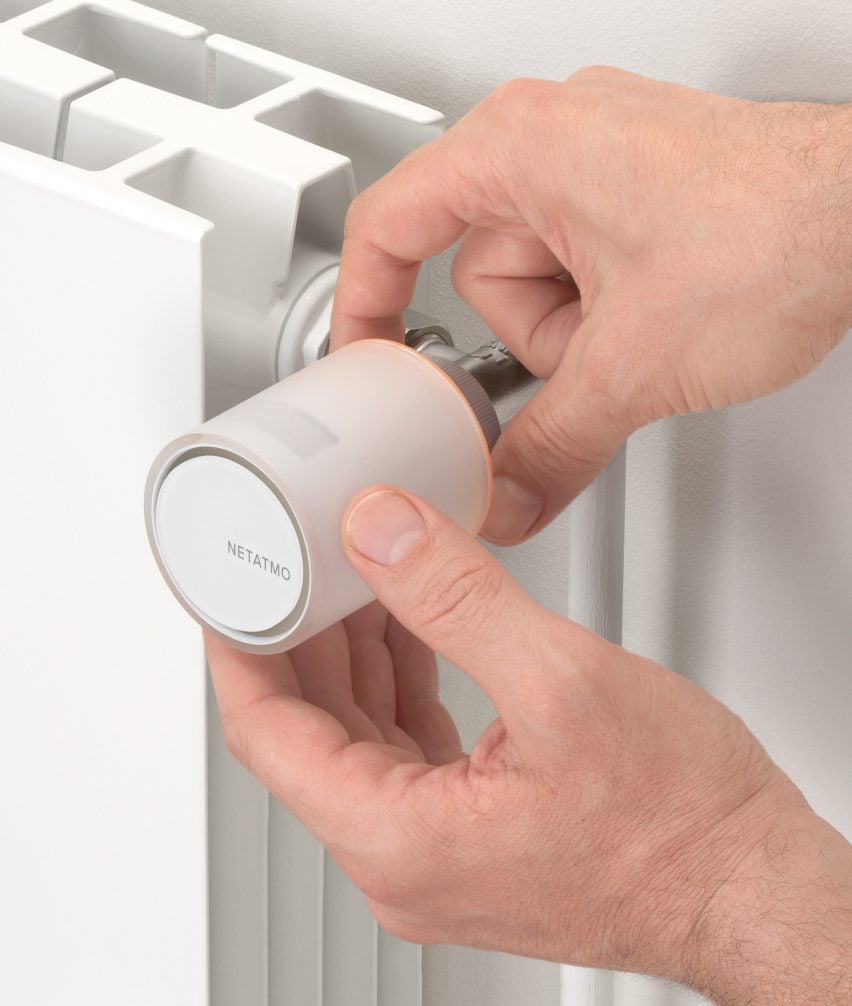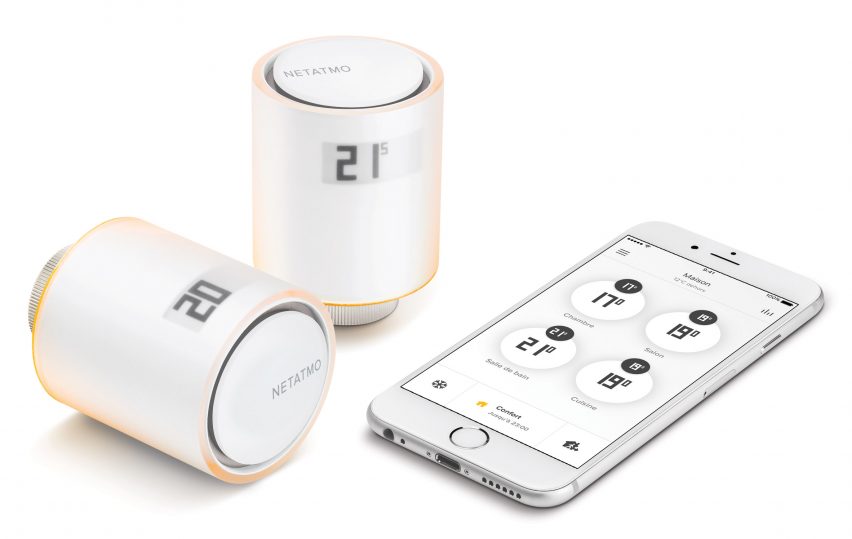Philippe Starck designs voice-controlled smart radiator valves for Netatmo
French designer Philippe Starck has created smart radiator valves that allow homeowners to remotely control the temperature of each room using their voice (+ movie).
Starck worked alongside French company Netatmo to create the set of valves, which are designed to work alongside the smart thermostat he previously designed in 2013.

The intelligent heating solution works through Apple's connected home app HomeKit. It can also be controlled using Siri – Apple's voice assistant – meaning that users can adjust their heating settings using their voice.
The user can direct Siri to change the temperature of the whole house, or to just change the temperature of certain rooms.

The system reacts to the occupants of the house in real time, by analysing factors like the number of people in the room and whether electrical appliances are being used.
The valves can also detect when a window is open and stop heating a room – something Netatmo claims could reduce energy usage by up to 37 per cent.

The company states that the system works with 90 per cent of normal hot water radiators on the European market. It is not currently compatible with international heating systems.
Similar to the thermostat, Starck's simple design features a translucent plexiglass cover and e-ink screen which shows the current temperature setting.
Designers are increasingly working to beautify and simplify tech gadgets for the entire home. Yves Behar previously unveiled a streamlined British thermostat aimed at "everyone from your grandma to your auntie", while Italian design studio Tipic created a smart kitchen countertop that integrates various interactive functions.

However, architect Rem Koolhaas has described the rise of smart systems as "potentially sinister", saying it is "totally astonishing" that people are willing to sacrifice their privacy for convenience and describing .